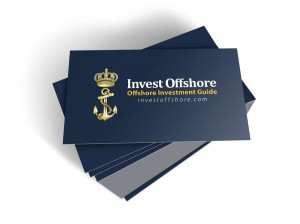Life insurance and annuity contracts receive tax-favored treatment almost without exception around the world. The tax-favored treatment is not hard to understand given the universal importance of the social welfare of families. In many cases, the international taxation of life insurance and annuities is superior to U.S. taxation primarily because of the rigid and complex U.S. definition of life insurance in the Internal Revenue Code (IRC Sec 7702 for life insurance and IRC Sec 72 for annuities).
International life insurance generally requires a fraction of the mortality risk of U.S. life insurance. A typical international style is the so-called 101% Life Policy. This policy requires a small amount of mortality risk - 101% of the initial premium and subsequent policy account value. As a result, these policies are very tax and cost efficient in that the insurance costs within the policy are very low.
Using the UK-styled 101 policy as an example and ignoring U.S. tax considerations, a policyholder would not be taxed on the investment fund or income linked to the policy. The policyholder would also be able to withdrawal up to 5 percent of the policy's account value each year for twenty years without taxation. Any unused withdrawal right is carried forward.
The policy is considered non-qualifying form a UK tax perspective. As a result, the death benefit would result in a taxable event to policy beneficiaries. Policyholders avoid this tax result by adding multiple insureds to the policy.
All of this is nice if you are a Brit or a German but not if you are an American.
Tax Requirements for U.S. Insurance Contracts
If you are an American, you are taxed on your worldwide income and assets. No surprise! The surprise comes when you find out that the IRC Sec 7702 has a very precise definition of a life insurance contract for tax purposes. When a life insurance contract violates this provision, IRC Sec 7702(g) dictates how the policyholder will be taxed. Guess what? These policies violate the U.S. definition of life insurance.
In a nutshell, a violation results in the policyholder being taxed on the investment income within the policy in the year the contract fails the U.S. tax law definition of life insurance. The policyholder is also taxable on the cost of insurance associated with the mortality component of the policy.
If a policy has been non-compliant for U.S. purposes for ten years, technically all of the investment gain within the policy would become taxable immediately along with the cost of insurance component during that time frame.
Variable annuity contracts also have a specific definition within the Internal Revenue Code, IRC Sec 72. Additionally, variable life insurance and annuities also must also comply with the rules for variable insurance products found in IRC Sec 817(h) and Treasury Regulation 1.817-5.
An important component of these rules is the requirement that the investment funds must be exclusively available to the policyholders of the insurance company and not include non-insurance investors. In my experience, every non-U.S. variable life or annuity policy (unless it is specifically for Americans) or unit linked policy would fail to meet the requirements of IRC Sec 817(h) as well as IRC Sec 7702 or IRC Sec 72
The majority of tax treaties dealing with annuity provisions provides for no taxed on annuity income in the Host Country and only in the Home Country. Unfortunately, the U.S. tax rules would cause the American owning the foreign life insurance or deferred annuity contract to be taxed currently.
What Should the American Policyholders Do?
The Correct Answer?
The regulations do not provide a "fix period" to correct the problem. Income is reportable in the tax year that you noticed the problem or were told that you had the problem. Ignorance is not bliss. No innocent spouse on this one.
Chances are that you have had this problem for a while so that you have unreported income in prior tax years along with interest and possibly penalties depending upon the amount of unreported income. Ouch!
Don't Ask, Don't Tell?
The issue presented in the article is a hyper-technical issue. After all, who cares about the definition of life insurance except life insurance agents and companies? Most people barely understand insurance products in their home jurisdiction let alone the rules of their host country. Furthermore, it is likely most Americans living abroad missed the requirement in college to take that class in Actuarial Science 101. It was not a required course.
One possible solution to fixing the problem is to transfer the problem. This transfer into a new policy is known as a 1035 tax-free exchange. This provision in the Internal Revenue Code (IRC Sec 1035) allows for the tax-free exchange of an existing policy for a new policy without taxation. The new policy should be U.S. tax compliant.
The requirements for a 1035 exchange generally provide that the policyholder of both policies (existing and new) remain the same as well as the insured. The requirements for annuities are similar - same policyholder and annuitant. In reality, most U.S. life insurers will probably tell you to surrender the policy and send them the premium as opposed to trying to execute a direct transfer from the foreign life insurer.
A number of offshore life insurers should allow the exchange of the policy. In many cases, the offshore life insurer will seek to issue the policy from their insurer which has not made a U.S. tax election under IRC Sec 953(d). The U.S. tax electing company has U.S. reporting requirements. Regardless, the asset is still reportable under the FBAR rules and Foreign Property rules (Form 8938). The policy issued by the non-U.S. electing carrier must be U.S. tax compliant.
Another solution to the problem might be the surrender of the foreign life insurance policy in order to purchase a new policy - life or annuity- The U.S. taxpayer has an obligation to report the income if there is any gain on their tax return.
Private placement insurance policies are good options. These policies are institutionally priced and allow for customized investment options with your own investment advisor. Additionally, I am aware of one EU-based insurer that can issue a U.S. tax compliant private placement product while meeting the local requirements throughout the EU and EEA.
Another solution to the problem is the purchase of a Frozen Cash Value life insurance policy. This policy is generally a single premium private placement life insurance contract that is intentionally designed to fail the U.S. tax requirements. However, the cash value within the policy is "frozen" and equal to the policy's cumulative premiums. In effect, there is no inside buildup that would otherwise be currently taxable. The policy provides for a small mortality risk corridor similar to the UK-styled policy that we have discussed throughout this article.
The investment growth within the policy becomes payable at death on a tax-free basis. The policyholder is able to borrow or take a partial surrender of the cash value generally up to 90 percent of the policy's cumulative premiums on a tax-free basis.
One caveat - you need a significant amount of investment to access this type of policy.
Summary
The days of wine and roses (at least from a tax compliance perspective) associated with living abroad for Americans are past. The U.S. Government has imposed very strict tax compliance requirements for Americans living overseas. The requirement to pay taxes on worldwide income and assets carries with its subtleties that can cause big tax consequences. If you are an American sitting on a foreign life insurance policy with cash value, you need to make a change as soon as possible.
The implementation of FACTA and the expansion for tax information exchange treaties suggest that the tax holiday is over for Americans. It is more than likely than Uncle Sam will gather frequent flier miles visiting Americans in the four corners of the globe to collect taxes. This one is an easy one to overlook.
Authors Note: The above article was written by Gerry Nowotny, a tax and estate planning attorney with a JD and LL.M in estate planning from the University of Miami School of Law.
¹Super Roth IRA is a trademark of Reg Wilson of Epic Financial.
| 
 Investment Description
Investment Description









 Home Page
Home Page